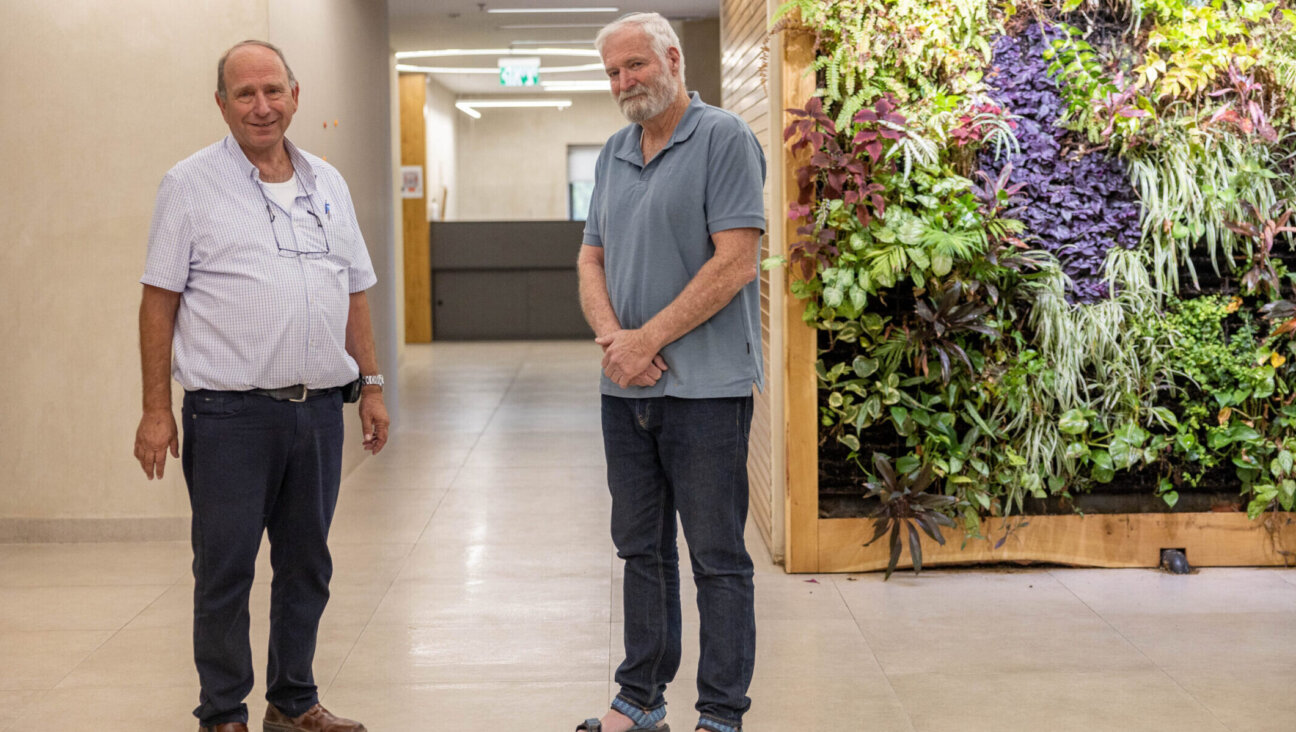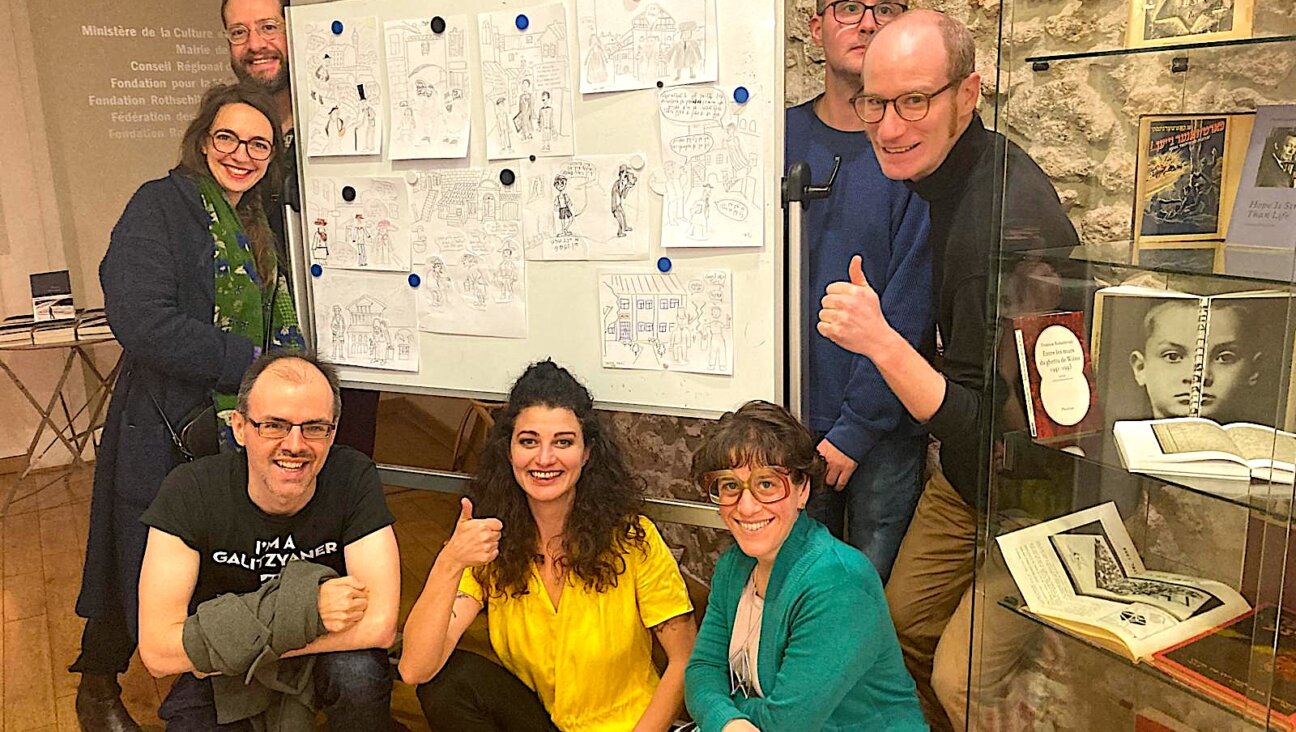Middle-Class Job Woes Persist Despite Bright Economic News
Unemployed Jews were spilling out of the lecture hall at the Orthodox Union’s national office in downtown New York Tuesday morning. A total of 110 job seekers had signed up for the free employment workshop offered by the O.U., and another 45 had to be turned away for lack of space.
The workshop took place just a day after a much-heralded announcement that America’s manufacturing sector had grown at record rates during November, buttressing other indicators of an economic turnaround. But many economists confirm what the scene at Tuesday’s workshop suggested: While low-income jobs have begun to appear, unemployment among the middle class has yet to show any sign of improvement.
“Our caseloads are still growing,” said Genie Cohen, executive director of the International Association of Jewish Vocational Services. “Our agencies are still seeing a growing number of middle-class unemployed Jews out of work.”
The national employment figures do show signs of improvement. Economists estimate that close to 150,000 new jobs were created last month, and since June the federal unemployment rate has fallen to 6% from 6.4%. But, labor economists say, even if the estimates for November prove correct, the growth will only be enough to offset the influx of new workers who enter the labor market each month. The 150,000 figure also falls far short of the 306,000 new jobs a month that President Bush promised would follow his tax-cut package, adopted in June.
“The job growth now is far lower than what we’ve seen coming out of every other recession,” said Larry Mishel, president of the Economic Policy Institute, a liberal think tank in Washington. “The modest recovery now is far inferior to what we’ve experienced in every other recovery, and it has not led to a vibrant labor market.”
Perhaps most troubling to economists and social-service workers is that the jobs being created are overwhelmingly in low-wage sectors like manufacturing and retail, while high-wage positions continue to disappear. The problem, particularly acute for a Jewish workforce concentrated in white-collar professions, was on display in the O.U.’s conference room on Tuesday. The scene was dominated by middle-aged men in suits who spouted off important titles they used to hold. Jewish vocational experts around the country say the situation is not much different outside of New York.
“High level jobs and managerial positions are not opening up at all,” said Vivian Siegel, executive director of Jewish Vocational Services in Los Angeles. “The other group we haven’t seen a turnaround in is for recent college grads.”
Participant after participant at the O.U. workshop told stories of losing a job in the last few months, putting faces on the continuing job contraction in certain sectors. Mark Ziring, a 50-year-old systems analyst, lost his job just two months ago when his company outsourced much of the computer work to the Philippines. Technical professionals like Ziring have been particularly hard hit since the recession began in early 2001, and economists fear that the outsourcing of these jobs to Asian countries may be permanent.
“The technical jobs have been in large part outsourced, and they are not going to come back,” said Meryl Kordower, assistant vice president at Federation Employment and Guidance Services, the New York Jewish agency that provided job counselors for the O.U. event.
For decades Kordower’s organization and 27 similar vocational agencies across the country have been offering job counseling to individuals both inside and outside the Jewish community. But in recent years the needs have exploded, stretching the community’s capacity to serve its own. Recently religious congregations have begun offering services for unemployed congregants.
New York synagogues have been rife with job workshops during the past year and the trend has spread to places like Worthington, Ohio, and Bellevue, Wash., where Reform congregations have set up online job listings and networking groups. The O.U. workshop, however, marked the first time the national body of any of the major Jewish denominations has offered practical employment services to its constituents.
Jewish social-service workers say that religious organizations have only recently begun to comprehend the full gravity of the unemployment situation. “Religious organizations are finally opening their eyes to notice that the economy is hitting people at the middle- and upper-middle-class salaries,” said Cohen, of the International Association of Jewish Vocational Services.
Employment advocates from outside the Jewish community say that religious communities need to play a greater role in delivering social services. While employment continues to be a problem, federal and state governments have cut vocational services to the unemployed, leaving many of those responsibilities to non-state actors, including religious organizations.
The director of programming at the O.U., Rabbi Moshe Krupke, said that both the New York workshop and the national job bank recently established on the organization’s Web site are part of a larger effort to offer “guidance and structure to specific families.”
“We now have the desire and the mandate to be of some practical service to our constituency,” Krupke said.
Only about one third of the O.U.’s member congregations are located in the New York area. But Frank Buchweitz, who organized the workshop, said he hopes it will “serve as a model for other communities to use.”
Some attendees were bothered that the O.U. did not get its act together sooner to offer a workshop. A 40-year-old information technician, who asked to be identified only by his first name, Mark, lost his job at a dot-com company two-and-a-half years ago and has been searching ever since. “The layoffs have been occurring for a few years,” he said. “They shouldn’t be waiting two years to schedule the first program.”
For the growing ranks of unemployed coming from high-up positions, the realities of this new job market are a humbling experience. The message that Kera Green, the job counselor at the O.U. workshop, kept coming back to was: “No one cares about you and who you are — they just want to know what you are going to do for them.”
It took a number of questions from the audience for this concept to sink in, and as it did the anxiety and tension in the room were palpable. Bickering broke out repeatedly during the question-and-answer session over the proper way to state salary requirements, and afterward, most of the participants rushed to the front for a moment of consultation with one of the job counselors.
Ziring was looking a little defeated afterward. “I remember the good old days when employers would call you up, and you would have time to get to know an interviewer,” Ziring said. “Those days are clearly gone.”
A message from our CEO & publisher Rachel Fishman Feddersen

I hope you appreciated this article. Before you go, I’d like to ask you to please support the Forward’s award-winning, nonprofit journalism during this critical time.
We’ve set a goal to raise $260,000 by December 31. That’s an ambitious goal, but one that will give us the resources we need to invest in the high quality news, opinion, analysis and cultural coverage that isn’t available anywhere else.
If you feel inspired to make an impact, now is the time to give something back. Join us as a member at your most generous level.
— Rachel Fishman Feddersen, Publisher and CEO






















